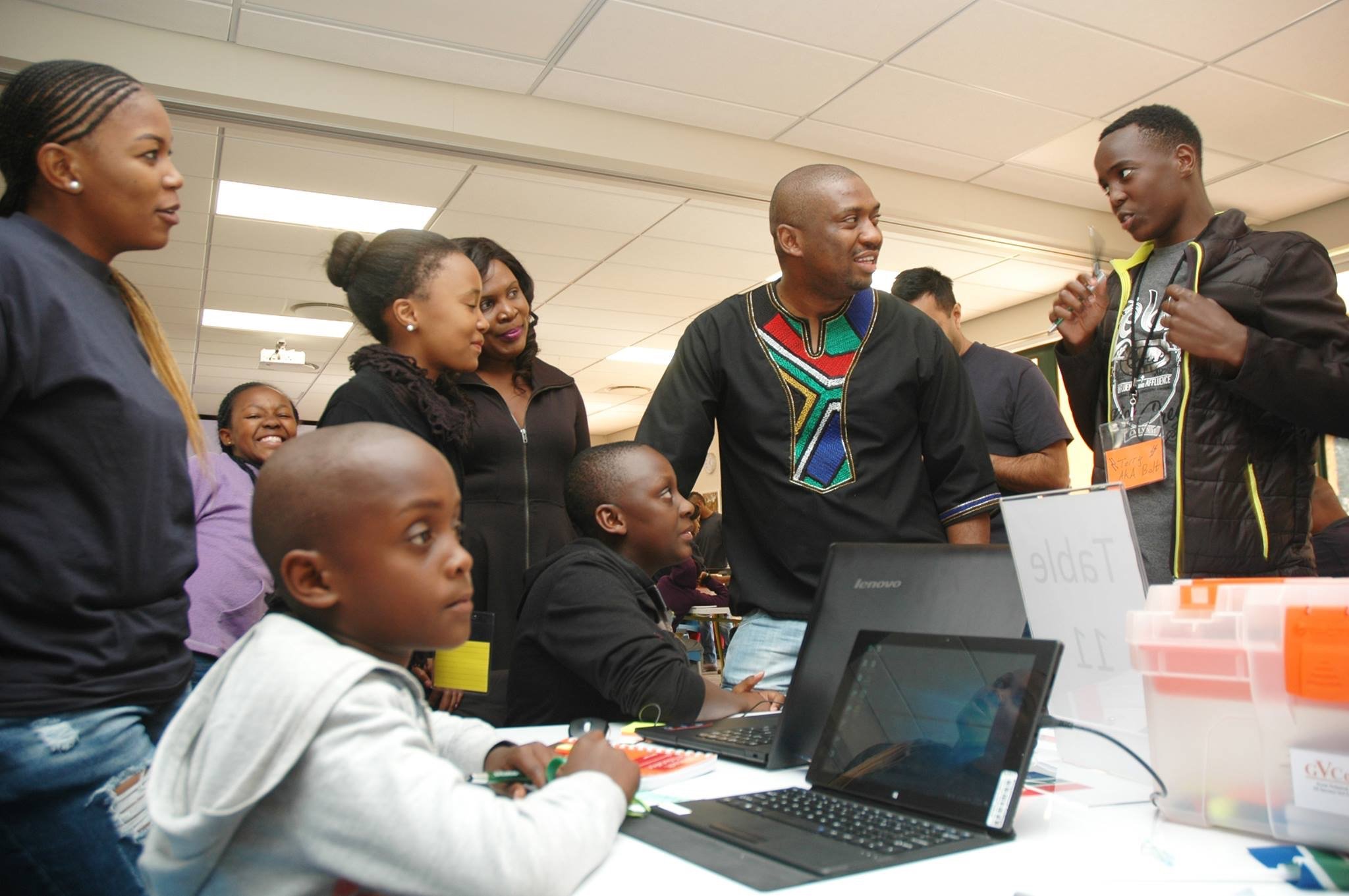Lindiwe Matlali is on a mission to change the lives of children in South African townships.
A graduate of Columbia University in New York and the founder of Apodytes, a tech company, Matlali created the coding academy Africa Teen Geeks in 2014 after meeting an 8-year-old coder who had built her own app in the US.
The meeting inspired her to research the state of computer science education in South Africa.
Take Action: Share How Technology Can Build the Bridge to Possible
“I learned that information technology was only taught from grade 10 and only in affluent schools,” she tells Global Citizen.
By breaking barriers to access created by high data costs and the historic inequalities that have left South Africa’s township underdeveloped and under-resourced, Africa Teen Geeks is ensuring that no child is left behind in the tech revolution.
“Many children from townships do not have an opportunity to learn even basic computing, let alone coding. They are also not exposed to the awesome opportunities technology provides and that they can actually participate,” says Matlali.
Her work is also inspired by research from the Equal Opportunity Project at Harvard University that focused on “lost Einsteins.” The research found that children from wealthy families are more likely to be innovators, and that if a child meets an innovator, they are likely to grow up and be innovative, too.
“I want to expose these kids to innovators so that they can be inspired, raise their aspirations, and break the cycle of poverty and disadvantage,” says Matlali.
Classes are held at various locations in all nine provinces in the country, with participants who are aged between 8 and 18. “We have over 238 kids in our programmes and even more waiting to start,” she says.
Some classes have 25 children, others up to 75.
Younger participants starts with Scratch and Python. High school learners are taught CS50 AP, Harvard University's introduction to computer science, programming, and artificial intelligence.
This Saturday our #teengeeks at all 7 @UNISA campuses started @cs50 AP for high school taught by @davidjmalan. The course introduces them to algorithms, #scratch, #python, #javascript, #datascience & #artificialintelligence#Africateengeekspic.twitter.com/ezub0jiDBV
— Africa Teen Geeks (@africateengeeks) March 16, 2019
In sub-Saharan Africa, where at least 400 million people live in abject poverty, tech innovation is starting to fill in the gap left by poverty, natural disaster like droughts, lack of health systems, and inequality, Matlali says.
“For example, in Rwanda there's a company that delivers blood in remote hospitals by drones, allowing rural people have access to health. And the use of technology also assists subsistence farmers [in getting] access to seeds through group buying via an app in Kenya.”
The role of science, technology, and innovation in meeting achieving the 17 UN Global Goals that work together to end extreme poverty is a powerful one, and has already started transforming Africa.
What makes Africa Teen Geeks work even more important is that their weekend coding classes are held in various townships across South Africa.
The coding classes are already opening up a world of possibilities for participants. They competed at a Global Hackathon that was hosted in partnership with the United Nations Office on Drugs and Crime, Africa Teen Geeks, and Symantec in Mountain View, California, in the United States.
The hackathon was attended by children from Bolivia, the United States, Indonesia, and South Africa.
“The South African team didn't only win the hackathon, we also won the people's choice award voted for by Symantec employees,” says Matlali.
Africa Teen Geeks also trains teachers in coding, enabling them to take it to their classrooms. So far, 200 teachers have been trained.
This year, Matlali is going even further in turning innovation into the mainstay of education in South Africa. Africa Teen Geeks is developing a coding and robotics curriculum aimed at 72,000 teachers.

“We also have our Girl Geek Connect programme, which is a mentorship platform that connects high school learners to university students studying science, technology, engineering, and mathematics (STEM) degrees,” she says.
In June, Africa Teen Geeks will host the first Girl Geek Connect Summit with Minette Norman, who is the vice president of engineering practice at Autodesk in Silicon Valley.
“Norman is one of only five women who holds this position in Silicon Valley. She is the ultimate Girl Geek and an inspiration to me and all other women in tech,” says Matlali.
There will also be a tech entrepreneurship workshop with Eileen Brewer, who is a director of program management at Symantec in Mountain View and the managing director of Golden Seeds, a venture capital firm that invests in women-owned businesses in Silicon Valley.
Through the programme, Matlali says, girls will be taught how to prepare a pitch deck to teach them how to develop and sell ideas in five minutes.
“I want to show the kids that with a lot of hard work and maybe a few years, they too could be the next Mark Zuckerberg.”